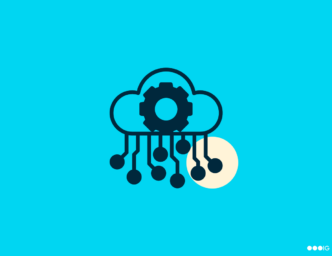Forbes projects the market for data analytics professionals to grow to at least $346.2 billion by 2030.
Now, you may be wondering…what does that have to do with SQL developers? But the world of data analytics is actually deeply entwined with that of SQL development.
Without SQL developers, information stored within database management systems would be inaccessible to data analysts and other professionals involved in data-centered business reporting. So, at a time when businesses rely on technology for modeling, forecasting, and decision making—it’s safe to say that SQL developers are a major asset.
And if you’re involved in business analytics, you need to have the right SQL developer on your team. Let’s take a look at how your data analysts can benefit from an expert in SQL and how to find them.
“Wait, What Does SQL Mean?”
SQL—pronounced ‘sequel’—is shorthand for Structured Query Language.
To understand SQL and how it helps businesses, we need to define 1) programming languages and 2) relational databases.
- Programming language, AKA code, is used to write commands for software, systems, or in the case of SQL, databases. In short, it’s how people tell technology what to do. And this language can be used to create, design, manage, or improve certain technological features or functions.
- Businesses use relational database management systems to store any information or data points that relate to one another. For example, when online retailers compile data by customer, and include their purchase history, name, and address. This information is related to one individual and is stored in a database that organizes it accordingly.
Looking at it altogether, SQL enables the developer to interact with relational databases so they can securely store, manage, retrieve, and analyze the relational data within them. Essentially, SQL is the language that developers use to speak with databases like MySQL, Oracle, and Sybase and interpret what the database is saying.
And now that we have a grasp on the language these developers use, let’s breakdown the role of a SQL developer and what qualities make them successful.
Finding the Right SQL Developer
Using their SQL literacy, the developers work alongside business analysts, database administrators, and other IT professionals involved in data management, analysis, or reporting. The developer’s contribution is creation and maintenance of databases to control and manipulate important data.
Typically involved in the full database lifecycle, they’re responsible for planning databases, developing them, and continually optimizing their performance. So when you’re hiring a SQL Developer, look for individuals who are proficient in:
- Designing database architecture
- Writing and analyzing queries
- Supporting and improving database performance and security
- Resolving errors within database designs and queries
- Working with data analysts to understand key data points and trends
- And setting up dashboards to support data reporting
Ultimately, the SQL developer’s mission is centered around supporting business intelligence reporting. This means they can help your team uncover key business insights, improve decision making skills, and guide your business in the right direction. Not to mention, these insights can lead to major revenue growth.
Skills and Coding Languages
The most important skills for a SQL developer are fluency in structured query language and knowledge of relational database management. But in addition to SQL, developers will ideally be familiar with other coding or programming languages such as:
- C++
- C#
- Python
- Java
- JavaScript
Beyond programming languages, SQL developers need working knowledge of popular relational databases, cloud services, and operational software.
The role of SQL developer also requires immense collaboration with data analysts, as well as communicating with stakeholders. So even though their technical skills are important, a successful SQL developer will have a few soft skills, too. When hiring for this role, look out for:
- Ability to interpret data and effectively translate the meaning of data points to stakeholders
- Strong critical thinking
- Effective decision-making
- Detail-orientation and troubleshooting
- Experience in collaborative environments and strong communication
Assess these skills by asking the right SQL developer interview questions.
Top Certifications for SQL Developers
To hire a SQL developer that stands out, it’s helpful to review their certifications. These can show you the extent of their technical skills in database design and administration, as well as competency in data analytics.
Here’s a list of useful certifications that prove SQL and database expertise:
- Microsoft Certified: Azure Data Fundamentals
- Oracle Database SQL Certified Associate
- IBM Certified Database Associate
- MTA Database Fundamentals
- MySQL for Data Analytics and Business Intelligence
Because SQL databases are sometimes cloud-based, it may also be helpful to look for candidates with general cloud certifications.
Hire SQL Developers, Gain Better Insights
The SQL developer is a critical component to any successful data analytics team. Having a designated expert in this programming language will take your business reporting to the next level, as you’ll have access to database solutions that are fine-tuned to your organization’s needs. Not only will this addition boost efficiency, but they can also improve the ability to interpret data, identify trends, and make better decisions for your business.
So if your data analytics needs a reboot, it may be time to look for the right SQL developer.
Need SQL Developers?
We can help!


 by Rie Parker
by Rie Parker


 by Brita Long
by Brita Long 

 by Erin Ellison
by Erin Ellison 
 by Anna Morelock
by Anna Morelock